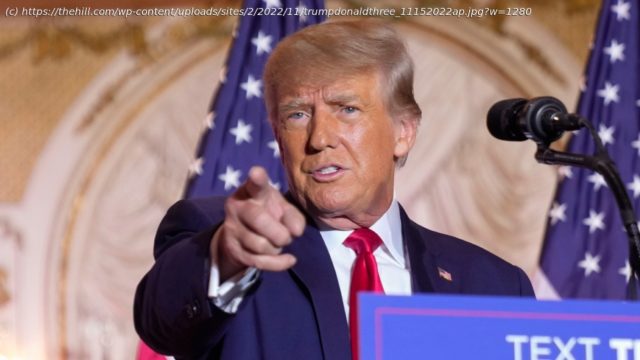Array
The lukewarm response to former President Trump’s announcement that he will once again seek the White House could provide a key opening for other Republicans still on the fence about whether to challenge him in 2024.
While the Tuesday campaign launch drew praise from Trump’s most loyal allies, the otherwise skeptical responses to an unusually restrained performance reflected the former president’s seemingly weakened position in the GOP after a lackluster midterm election performance.
That could open the door even wider to a hard-charging Gov. Ron DeSantis (R), riding high on his midterm win with the wind at his back — as well as to other would-be challengers.
“I think there are a lot of people today looking at that speech and seeing an opening,” one Republican strategist said. “He’s up there trying to explain the midterms, calling himself a victim. I think it came off as kind of a show of his weaknesses rather than a well-articulated argument for running again.”
Of course, Trump has been counted out before. When he launched his first — and so far only — successful bid for the White House in 2015, many Republicans shrugged off his candidacy early on, believing that he was more of an attention-seeking pariah than a serious contender for the presidency.
“I can’t count him out. He’s still the favorite,” Ford O’Connell, a Republican strategist and former congressional candidate, said. “I think what you saw last night was a recognition that 2024 is going to be different than 2016 or 2020. But one of the things he made clear was that he still wants to be the outsider, even as a former president.”
O’Connell said that Trump struck the right tone with his announcement. Instead of his usual bombast, Trump opted to focus more on issues, like inflation, border security and crime, setting up a clear contrast between himself and President Biden, O’Connell said.
“Trump really had his 2024 game face on in terms of the issue-focused tone. And I think what you saw from him was a recognition that 2024 is going to be different from 2016, from 2020,” O’Connell said.






